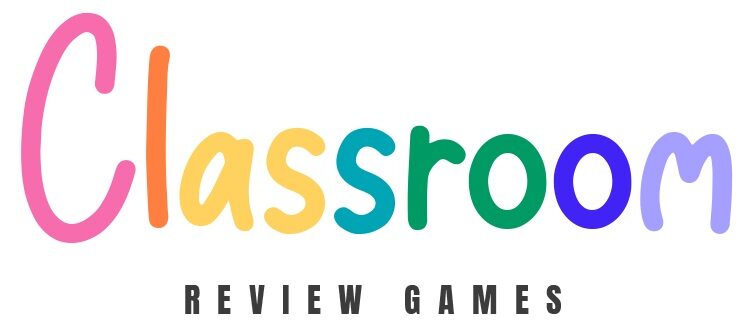Make Your Students Love Learning with These Engaging Classroom Word Games
Transform your vocabulary lessons into engaging competitions that students actually look forward to! Classroom vocabulary games not only boost word retention but create an electric atmosphere where learning feels more like play than work. From rapid-fire word chains to digital quiz battles, these interactive activities turn mundane memorization into memorable experiences that stick with students long after the bell rings.
Whether you’re teaching elementary sight words or advanced academic language, gamification provides the perfect blend of challenge and fun. Students develop confidence, strengthen peer relationships, and build essential vocabulary skills without even realizing they’re learning. Best of all, these versatile games require minimal prep time, adapt easily to any grade level, and work seamlessly with your existing curriculum.
Ready to revolutionize your vocabulary instruction? Let’s explore proven games and strategies that will have your students begging to practice their word work while fostering healthy competition and collaborative learning.
Quick-Start Word Games That Need Zero Prep

Word Chain Challenge
Get your students excited with this engaging twist on traditional word association games! In Word Chain, each student builds on the previous word by using its last letter as the starting letter of their new word. For example: cat → train → neat → table.
For younger students (K-2), keep it simple with basic vocabulary and allow any words. You can use picture cards to help visual learners or focus on specific categories like animals or foods.
Intermediate grades (3-5) can add challenges like:
– Words must be 4+ letters long
– Only using vocabulary from current units
– Setting time limits (10-15 seconds per turn)
For middle and high school students, try these variations:
– Words must relate to specific subjects (science terms, historical figures)
– Add definitions after each word
– Create sentences using the chain words
Pro tip: Keep a whiteboard handy to write down the chain, helping visual learners follow along and ensuring no words are repeated. When a student can’t think of a word, the chain starts over with a new word. This game works great as a quick warm-up or lesson transition activity!
Lightning Round Vocabulary
Lightning round games are perfect for those last five minutes of class or when you need a quick energy boost! In this fast-paced format, students must respond within seconds, keeping everyone on their toes and engaged.
Try “Word Chain,” where each student must say a vocabulary word starting with the last letter of the previous word. For example: “photosynthesis → spiral → lengthy.” Set a timer for added excitement!
“Hot Potato Vocab” combines movement with learning. Students pass a ball while music plays. When the music stops, the student holding the ball must correctly use a vocabulary word in a sentence.
“Rapid Fire Definition” splits the class into two teams. Call out a word, and the first student to correctly shout the definition scores a point. To make it more challenging, have students provide synonyms or antonyms instead.
These quick games require minimal prep and can be adapted for any subject or grade level. Keep a running list of vocabulary words handy, and you’ll always have an engaging activity ready to go!

Interactive Digital Word Games for Modern Classrooms
PowerPoint Vocabulary Races
Transform your PowerPoint slides into exciting vocabulary races that will have your students on the edge of their seats! Creating these PowerPoint games for students is easier than you might think. Start by creating a template with your vocabulary words hidden behind colorful shapes or images. When clicked, these shapes reveal the words, definitions, or both – whatever works best for your lesson!
To set up the race, divide your class into teams and assign each a different color or mascot. Display the vocabulary slide, and have teams take turns selecting shapes to find matching word-definition pairs. Award points for correct matches and keep the energy high with a running scoreboard on the side of your presentation.
Make it even more engaging by adding fun elements like “bonus points” shapes, “lose a turn” spaces, or “double points” rounds. You can customize the difficulty by adjusting the number of words, adding time limits, or including picture clues for visual learners.
Pro tip: Save your template and simply swap out the vocabulary words for different lessons. This saves prep time while keeping the excitement fresh! For younger students, use simple matching pairs, while older grades can tackle more complex vocabulary relationships and definitions.
Remember to keep the pace quick and celebrate team successes – nothing builds vocabulary confidence like a little friendly competition!
Virtual Word Walls
Virtual word walls bring the traditional classroom staple into the digital age, making vocabulary practice more interactive and engaging for tech-savvy students. Using tools like Google Jamboard, Padlet, or even simple Google Slides, you can create dynamic, collaborative spaces where students actively participate in building their vocabulary knowledge.
To get started, choose a digital platform and create separate sections for different themes, subjects, or units. Add images, animations, and even audio pronunciations to make words come alive. Students can contribute by adding their own examples, definitions, and even creating digital sticky notes with sentences using the target vocabulary.
Make it interactive by incorporating features like:
– Drag-and-drop activities where students match words with definitions
– Color-coding words by parts of speech or difficulty level
– Adding virtual pins or reactions to mark favorite or challenging words
– Creating hyperlinks to related resources or examples
Keep your virtual word wall fresh by rotating featured words weekly and encouraging students to interact with it during independent work time. You can even turn it into a game by having students create digital flashcards or organizing virtual vocabulary scavenger hunts.
For assessment, ask students to screenshot their contributions or create short digital presentations using words from the wall. This creates a lasting record of their vocabulary growth while keeping them engaged in the learning process.

Team-Based Vocabulary Challenges
Vocabulary Relay Race
Get your students moving while learning vocabulary with this energetic classroom game! Divide your class into equal teams and have them line up at one end of the room. Place vocabulary cards or sheets at the opposite end. When you say “go,” the first student from each team runs to their team’s vocabulary station.
For basic play, have students write a definition, use the word in a sentence, or draw a quick illustration before racing back to tag the next teammate. For advanced variations, ask students to provide synonyms, antonyms, or create word webs.
Make it extra exciting by adding challenge cards at the vocabulary station. These could include tasks like “Act out the word” or “Create a rhyme.” Students must complete their task correctly before returning to their team, adding an element of quality control to the speed component.
To keep everyone engaged, have waiting teammates work on their own vocabulary lists or participate as judges for the returning players’ answers. You can easily adapt the difficulty by adjusting the complexity of words and tasks.
Pro tip: Use different colored markers or papers for each team to avoid confusion, and consider having a “vocabulary checker” (either yourself or a student helper) at each station to verify answers before students return to their lines.
Word Detective Teams
Transform your students into vocabulary detectives with this engaging team-based activity! Split your class into small groups of 3-4 students and give each team a set of vocabulary words to investigate. Their mission? To uncover definitions, usage examples, and even word origins.
Each team receives detective notebooks (simple notepaper works great) and vocabulary cards. Teams work together to find clues about their assigned words using dictionaries, context clues, or digital resources. Encourage students to record multiple meanings, synonyms, and create memorable sentences.
Make it more exciting by adding special challenges: “Find a word within the word,” “Discover its language of origin,” or “Spot this word in your textbook.” Teams can earn bonus points for finding creative connections or uncovering interesting word facts.
After the investigation phase, teams take turns presenting their findings to the class. Spice things up with a “Rapid Fire Round” where teams challenge each other with questions about their discovered words. You can also create a classroom “Word Wall of Fame” where teams post their best discoveries.
For younger students, simplify the task by focusing on basic definitions and pictures. For older students, include etymology research and more complex word relationships. This activity works brilliantly for any subject area – from science vocabulary to literary terms!
Remember to rotate team members regularly to maintain fresh perspectives and encourage collaboration among all students.
Adapting Games for Different Learning Levels
Making vocabulary games work for every student is easier than you might think! Start by adjusting the difficulty of words – use basic sight words for younger learners while challenging older students with subject-specific vocabulary or multiple-meaning words. For mixed-ability groups, try creating word lists at different levels and color-coding cards or using symbols to identify difficulty tiers.
Keep the core game mechanics simple but add complexity layers for advanced learners. For example, in a matching game, beginners might pair words with pictures, while advanced students match words with definitions or create sentences. Consider time limits, point systems, or bonus challenges to add excitement for higher-level players.
For struggling learners, incorporate visual aids, allow peer assistance, or provide word banks. You can also modify rules to give extra turns or hints when needed. Remember to celebrate progress at all levels – sometimes simply using the word correctly is a win, while other times you might expect creative application or detailed explanations.
Quick tip: Create a flexible scoring system that rewards both accuracy and effort, ensuring every student has a chance to succeed!
Incorporating vocabulary games into your classroom routine can revolutionize the way your students learn and retain new words. These engaging activities not only make learning more enjoyable but also create lasting memories that help students remember vocabulary long after the lesson ends. By mixing up different game styles – from quick warm-ups to digital challenges and team competitions – you’ll keep students excited and motivated while building their confidence and language skills. Remember, you don’t need elaborate materials or hours of prep time to make vocabulary practice fun and effective. Start with one or two games that best suit your classroom dynamics, and gradually expand your collection as you get comfortable. Your students’ enthusiasm and improved vocabulary retention will prove that making learning fun is always worth the effort. So why wait? Transform your next vocabulary lesson into an adventure your students won’t want to miss!

